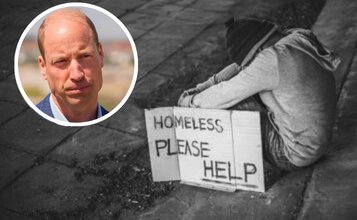Princess Charlotte JUST Breaks Silence and Shocks Everyone With EMOTIONAL SPEECH!
She’s the young royal who’s captured hearts worldwide with her charm and poise—but no one expected what happened next.
Princess Charlotte, just a child in the public eye, has broken her silence in a way that left everyone stunned. An emotional speech, so heartfelt it’s echoing across the globe, is touching lives beyond royal enthusiasts and into the hearts of everyday people.
It wasn’t during a grand royal event or an orchestrated press appearance. No, it happened somewhere unexpected—a small, intimate gathering meant to honor a cause close to the royal family’s heart. This wasn’t an event designed for public spectacle; it was a heartfelt ceremony filled with personal stories and genuine emotion.
As the room filled with dignitaries, family members, and cameras poised to capture the usual formalities, Princess Charlotte stood up. Her eyes reflected both courage and vulnerability. It was as if she had been waiting for this exact moment to share something deeply personal.
Her voice—steady, touched with emotion—carried words far beyond her years. She spoke not as a princess confined by protocol, but as a young girl with a message that needed to be heard.
Charlotte’s speech wasn’t rehearsed to perfection. It was raw, authentic, and deeply moving. She shared her feelings about loss, family, and the weight of growing up under the constant gaze of the world. Each word she spoke seemed to peel back the layers of royal decorum, revealing the authentic emotions of a young girl grappling with experiences that many her age might never face.
Witnesses say the room fell into a profound silence. Even the most seasoned royals and hardened reporters felt the impact. There was no pretense, no royal gloss—just Charlotte bearing her heart.
She spoke about missing her great-grandmother, Queen Elizabeth II, painting a picture of a little girl trying to understand grief while the world watched. Her words described not just the absence of a beloved family member but the unique struggle of mourning someone so publicly admired while also feeling that loss on a deeply personal level.
She described moments spent with her great-grandmother—the lessons learned, the warmth felt. Stories of quiet afternoons, shared smiles, and simple yet profound wisdom imparted by the Queen. Her words painted vivid images of personal stories never shared before, offering a glimpse into the private world of the royal family.
It wasn’t just about loss. Charlotte also spoke of hope, resilience, and the importance of cherishing memories. She highlighted how memories are not just remnants of the past but living threads that keep loved ones close, even after they are gone.
What made this speech extraordinary wasn’t just the content but the delivery. Charlotte’s voice didn’t waver with nerves; instead, it carried the quiet strength of someone wise beyond her years. She didn’t hide behind a podium or notes. She stood tall—her posture echoing the grace of her mother, the Princess of Wales, and the quiet confidence of her late great-grandmother.
The sincerity in her tone, the occasional pause to gather her thoughts—all added to the authenticity of the moment, making it impossible for anyone in the room to remain unaffected.
The reaction was immediate. Faces in the crowd showed tears, admiration, and awe. Many described it as the most authentic royal moment they had ever witnessed.
Social media exploded with clips and quotes, with people from around the world expressing how deeply her words touched them. Hashtags related to Charlotte’s speech trended globally, with individuals sharing their own stories of grief and how her words resonated with their personal experiences. The global response transformed her speech from a royal event into a universal message of connection.
Royal commentators were quick to analyze. Some said it was a defining moment—a glimpse into the future of the monarchy. They highlighted how Charlotte’s natural ability to connect emotionally could reshape public perception of the royal family—not through grand gestures, but through genuine human connection. Experts noted that this kind of authenticity could play a crucial role in modernizing the monarchy, making it more relatable to younger generations and those who might have previously felt disconnected from royal traditions.
But why was this speech so impactful?
Perhaps because it shattered the polished image often associated with royal appearances. It reminded everyone that behind the titles and traditions are real people with real emotions.
Charlotte’s candidness broke down barriers, making her relatable—not as a princess, but as a child navigating grief and growth. Her vulnerability showed that emotions don’t discriminate by status or title. Everyone experiences loss, and everyone seeks comfort in memories and shared stories.
This wasn’t just a one-off moment. Insiders suggest that Charlotte has always had a unique blend of empathy and strength. Those close to her describe her as perceptive—noticing details others overlook, feeling deeply, and expressing herself with surprising clarity.
Family members have shared anecdotes of Charlotte’s natural inclination to comfort those around her—whether it’s offering a kind word or a simple gesture of support—revealing a depth of character uncommon for her age.
In the days following her speech, stories emerged of people inspired to reconnect with loved ones, to express emotions they’d kept hidden. Charlotte’s words became more than a royal anecdote; they sparked personal reflections across the world. Some wrote letters to estranged family members. Others visited graves they hadn’t in years. All were moved by the heartfelt message of a young girl who spoke with unfiltered honesty.
It also raised questions about her future role within the monarchy. Could this be an early sign of a royal figure destined to bridge tradition with authenticity? If her first public emotional address had this much impact, what could she achieve in the years to come?
Many speculate that Charlotte could become a key figure in reshaping how the royal family connects with the public—using emotional intelligence as a cornerstone of her role.
Charlotte’s speech didn’t just honor the past; it hinted at a future where the royal family isn’t just seen, but genuinely heard. A future where emotional intelligence and vulnerability are valued as much as duty and decorum.
This represents a shift from the “stiff upper lip” approach often associated with British royalty—moving towards a more open and emotionally expressive way of engaging with the public.
Observers noted that her speech, though brief, had a ripple effect. Schools discussed it in classrooms. Parents showed it to their children. Leaders quoted it in speeches. It transcended royal interest and became a universal message about love, loss, and resilience. Teachers used it as an example of effective communication, highlighting the power of sincerity and emotional connection in public speaking.
And perhaps that’s the most shocking part—not that Princess Charlotte spoke, but that her words resonated far beyond royal watchers. They touched hearts that usually remain indifferent to monarchy news.
People who never followed royal affairs found themselves captivated by the authenticity of her message—proving that genuine emotion knows no boundaries.
Behind palace walls, it’s said that her parents, Prince William and Princess Catherine, were deeply moved. Proud, of course, but also reflective—recognizing the rare quality their daughter displayed. A balance of vulnerability and strength. An ability to articulate emotions many adults struggle to voice.
Friends of the family mentioned how this moment prompted heartfelt conversations within the royal household about the importance of expressing emotions openly.
Royal insiders revealed that Charlotte had insisted on speaking. It wasn’t planned by advisers. It was her own decision. She felt compelled to share—to honor her great-grandmother in her own words. That determination speaks volumes about her character.
It’s said that she rehearsed quietly—not for perfection, but to ensure she spoke from the heart—reflecting a maturity that left even her closest family members in awe.
This moment also sparked a new wave of public interest in Princess Charlotte. Not just as the adorable royal in photographs, but as an individual with a voice that carries weight.
People started to revisit past glimpses of her personality—her confident waves at events, her protective gestures toward her brothers, her candid expressions captured by photographers. Each instance now seemed to foreshadow the poised young girl who delivered such a powerful speech. Each clip, each photo now seen in a new light—hints of the eloquent, emotionally intelligent girl who would one day stand and deliver words that moved millions.
Commentators began to compile timelines of her public appearances, noting subtle signs of her emerging confidence and leadership qualities.
What’s next for Princess Charlotte?
That’s the question on everyone’s mind.
If this is how she speaks as a child, what will she say as she grows? How will her voice shape not just the royal narrative but public conversations on grief, growth, and connection?
Will she take on causes that align with her emotional insight—perhaps focusing on mental health, children’s welfare, or education?
This speech wasn’t just a fleeting royal headline. It marked the emergence of a young royal who isn’t afraid to be real, to be emotional, to be heard.
A royal whose words carry the potential to inspire change, foster connection, and redefine what it means to be part of the British monarchy in the modern era.
And as the world listens, one thing is clear—Princess Charlotte has more to say. Much more.
And when she speaks again, the world will be ready to listen.






